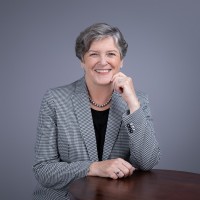e-News
Spotlights: University Distinguished Teaching Award, 2020 Teaching Excellence Awards & Faculty Teaching Medal 2020
Spotlights: University Distinguished Teaching Award, 2020 Teaching Excellence Awards & Faculty Teaching Medal 2020
Dr Janice Johnston
Associate Professor, School of Public Health
 |
Dr Janice Johnston has recently retired from the post of Deputy Director (Education) of the School of Public Health after serving the University of Hong Kong for thirty years and moved back to Canada. In recognition of her contribution to teaching and research, she received the University Distinguished Teaching Award in 2020 Teaching Excellence Awards from the University and the Faculty Teaching Medal 2020 from the Li Ka Shing Faculty of Medicine. The programme of Master of Public Health which she played a pivotal role in its development has trained thousands of professionals to become effective public health practitioners and leaders. How did you start your affiliation with HKU Med? How would you describe your teaching style? What is the most creative thing you have done to engage your students? While new programmes are exciting, working with sunsetting programmes have also marked my career. In programmes I have helped to sunset I sought to support teachers and students such that excellence in teaching and learning was maintained. How do you relate to your students? How do you integrate your research and teaching? I co-wrote the BASc GHD proposal, negotiated the structure of the major and minors, led the critical thinking and planning for the field placement and other enrichment and exchange initiatives. I wrote the initial MPH proposal in 2000 and led all subsequent curriculum revisions including the 2015 TPG curriculum revisions, the QAC review and I am now leading our accreditation submission to the Council on Education for Public Health. All of these have required an intense review and rethink of the programme itself as well as engaging and working with staff to bring them around to these programme changes. In addition to curriculum development I have led broad changes across undergraduate and post graduate curricula in assessment. I have also introduced methods to assess student satisfaction and self-reported competency achievement by the students. This assessment has been critical to informing programme level leadership. Over the years I have led a number of significant research projects that have directly led to improvements in teaching and learning – both within the formal curriculum and that which directly impacts patient care. Watch Dr Johnston’s exclusive video here: https://www.youtube.com/watch?v=bx-Qph59t6E |